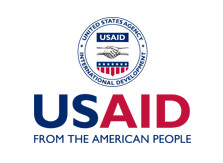Success Story
Community Role Models Work Outside-the-Box to Make Life Better in Kurudu
Despite being just nine kilometers from Abuja, Nigeria's capital, the village of Kurudu lacked basic social services. Its only health facility was sorely dilapidated and lacked adequate personnel, drugs, windows and doors. The only source of water was a local stream located 4 kilometers away where women and children performed basic chores among grazing cattle. Five years ago outbreaks of measles, whooping cough, diarrhea and tuberculosis killed several children in the community. Because of inaccessible roads, motorists rarely traveled to Kurudu. As a result, some women in labor died while trying to reach a health facility in Abuja to receive emergency care.
Between 1987 and 2004, the community wrote a series of letters to the government complaining about the lack of basic amenities. In response they received a well that quickly became non-functional. After years of unyielding efforts, they lost hope. "Everyone was for himself", said a community member, John Kuyambo. "We all had several individual problems to deal with", he continued. It was unfortunately expected when two boreholes provided by UNICEF in 2004 broke down in the same year. Nobody seemed to care. Throughout Nigeria, public facilities and services are not regularly maintained and soon collapse after they are commissioned. In most cases, the services are simply not adequate for the nation's teaming population. In Kurudu, the traditional governing structure was limited in its capability to improve the livelihoods of its residents; led by the Sarki (traditional ruler) and several chiefs, the leaders largely dealt with conflict resolution and land dispute matters.
However, with the introduction of a “community action committee” in August 2004, the community was prepped for a new lease of life. Simply called the Kurudu Community Coalition, the volunteer-based structure employs the active participation of farmers, traders, traditional and religious leaders, youths, market women, traditional birth attendants, service providers, and teachers - all within the community - to identify priority problems and jointly explore opportunities for resolving them. The Coalition utilizes a systematic approach to identify, prioritize, and resolve problems in health and education. Under guidance from the Community Participation for Action in the Social Sector (COMPASS) project with funding from United States Agency for International Development (USAID), Kurudu and other Coalitions in 51 Nigerian Local Government Areas are contributing to improving their communities.
Gathered in the Sarki's palace, members of the Coalition recited several achievements since the arrival of the COMPASS project. Though the Coalitions were formed primarily to solve priority problems in health and education, they have, in most cases, utilized the approach to solve other priority problems as well. In the case of Kurudu, the lack of potable water was their most serious concern. According to Kuyambo, "We resolved to repair the boreholes with N160,000 ($1165), an amount we loaned from members of the community." With the repairs, the Community Coalition appointed a taskforce to collect between N5 - N10 (about $.03 - $.07) from community members using the boreholes. With revenue from the project, they have repaid the initial loan and have continued to generate funds for regular maintenance of the pumps. Additionally, they have raised funds for implementing other development projects ranging from laying the foundation of a community hall to repairing roads.
|
In the case of Kurudu, the lack of potable water was their most serious concern. According to Kuyambo, "We resolved to repair the boreholes with N160,000 ($1165), an amount we loaned from members of the community." |
Recently, the Coalition secured scholarships from local private schools for children in the community whose parents cannot afford education costs. The Coalition also revived a deserted and dilapidated bungalow into a functioning health facility which a Youth Corp member recently renovated. Learning of the positive changes in his community, twenty-five year old Paul Daniel returned to volunteer at the local health facility. “After receiving training as a Community Health Extension Worker in 2006, I stayed at home waiting for a job and doing nothing," he said. "But after witnessing the activities of the Coalition, I decided to also contribute my own quota by assisting the service provider at this clinic". With Paul's help, more clients are able to access services at the health facility. "We even have clients from Pegi and other neighboring communities accessing services in Kurudu," said Paul.
Together, members of the community are undertaking additional improvements in the health facility including fencing, furniture and equipment. They are also concluding plans for accessing a drug revolving fund, a joint initiative between COMPASS and the DFID PATHS project. According to Kuyambo, “COMPASS has shown us the way to improve the condition of living in our communities." Members of the Coalition are now regarded as role models both within and outside Kurudu. Recently, World Bank's Fadama Project built a market for the community and handed it over to the Coalition to manage. "We have leased most of the stalls and used the money to build additional ones," said Kurudu Coalition Treasurer Allayayi Kadaya, "We now keep a community account for all revenues and utilize the resources for developmental projects." Kuyambo sums it up, "We are now the compass of our community. We are not relenting in our efforts."
|
